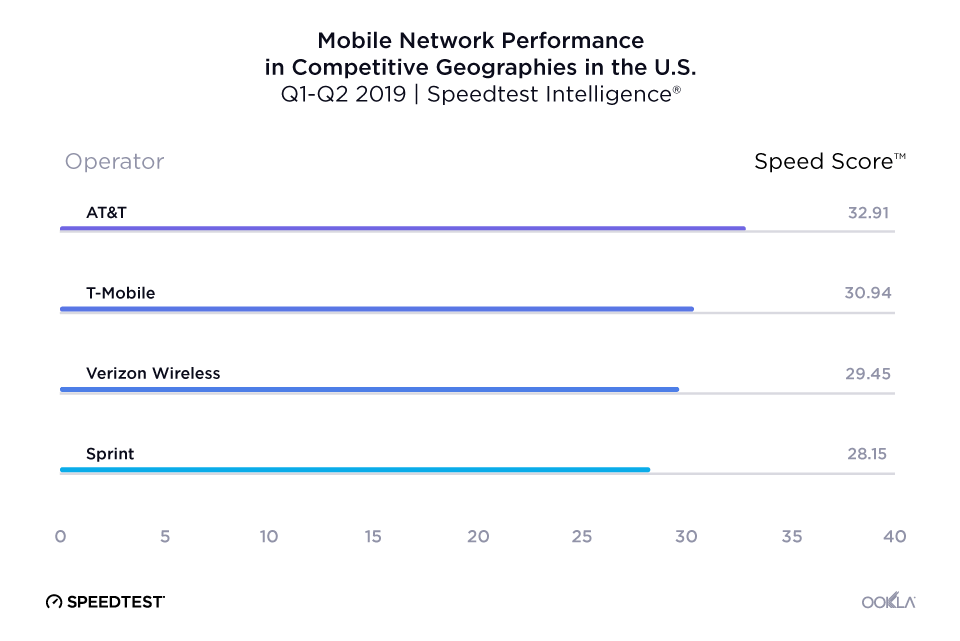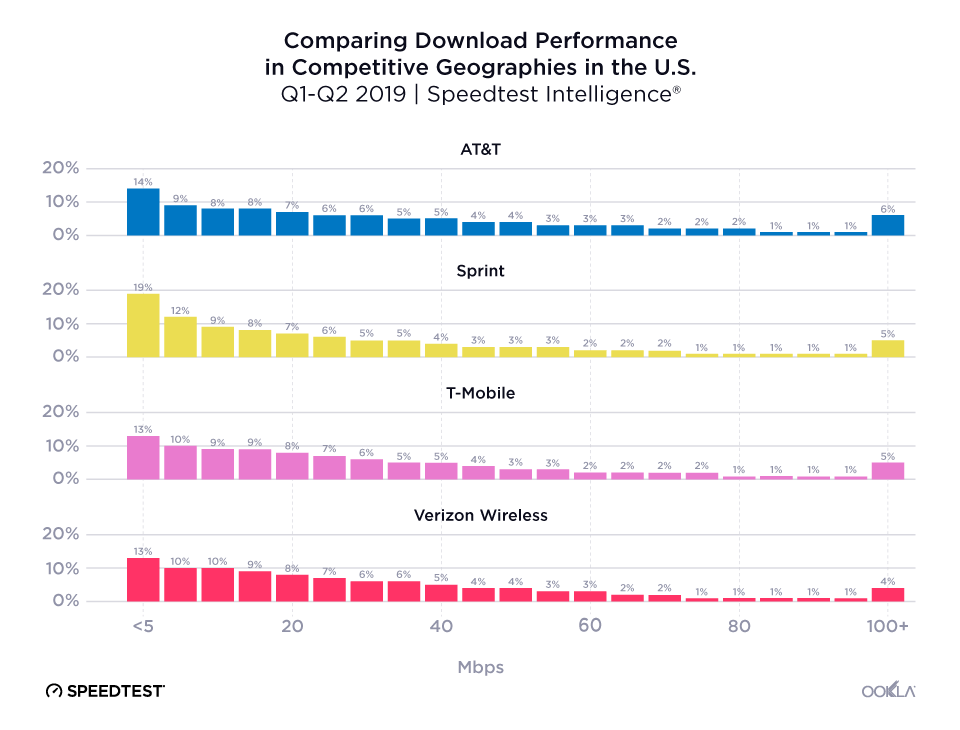In brief: Mobile network performance results from Ookla, the owners of Speedtest.net, show an upward trend for carriers in the United States. The average download speed was 33.9Mbps and the average upload speed was 9.75Mbps.
The full results for the first half of 2019 are available on Speedtest's website calculated from nearly 4 billion data points over 11.5 million individual tests. Mean download speeds increased 24% and upload speeds were up 13% compared to last year. Although this is part of an upward trend, the US still ranks 40th in the world for download speeds and 94th for uploads.
When comparing the four main operators, not much has changed from previous years. AT&T is still the fastest, Verizon is still the most reliable, T-Mobile still has the best price to performance ratio, and Sprint is still the best budget carrier.

Over the past year, AT&T has added more available spectrum to their network as well as more devices capable of four and five carrier aggregation. They have upgraded the infrastructure at most of their towers to new Nokia hardware. T-Mobile has focused heavily on expanding their coverage area. They also recently added some spectrum in the 600MHz range in anticipation of a 5G rollout.
Verizon has been focusing on making their networks more robust in urban areas. They are accomplishing this with the help of small cells and increasing the number of spatial streams available to users. Sprint has been tweaking the frequency and timing specifications of their network to help squeeze out more performance. They are also upgrading many of their radios to dual mode 4G/5G operation.

If you're moving and are wondering what carrier will offer the best performance in your new city, Ookla has compiled a list of the best carriers for most of the large cities in the US.
Take some of these results with a grain of salt though. It is 2019 and almost all benchmarks between providers are within just a few percent. Looking forward, we can expect LTE network upgrades to slow as carriers start a mass-rollout of 5G in the coming few years.
https://www.techspot.com/news/80831-speedtest-2019-mobile-results-show-upward-trend-carriers.html